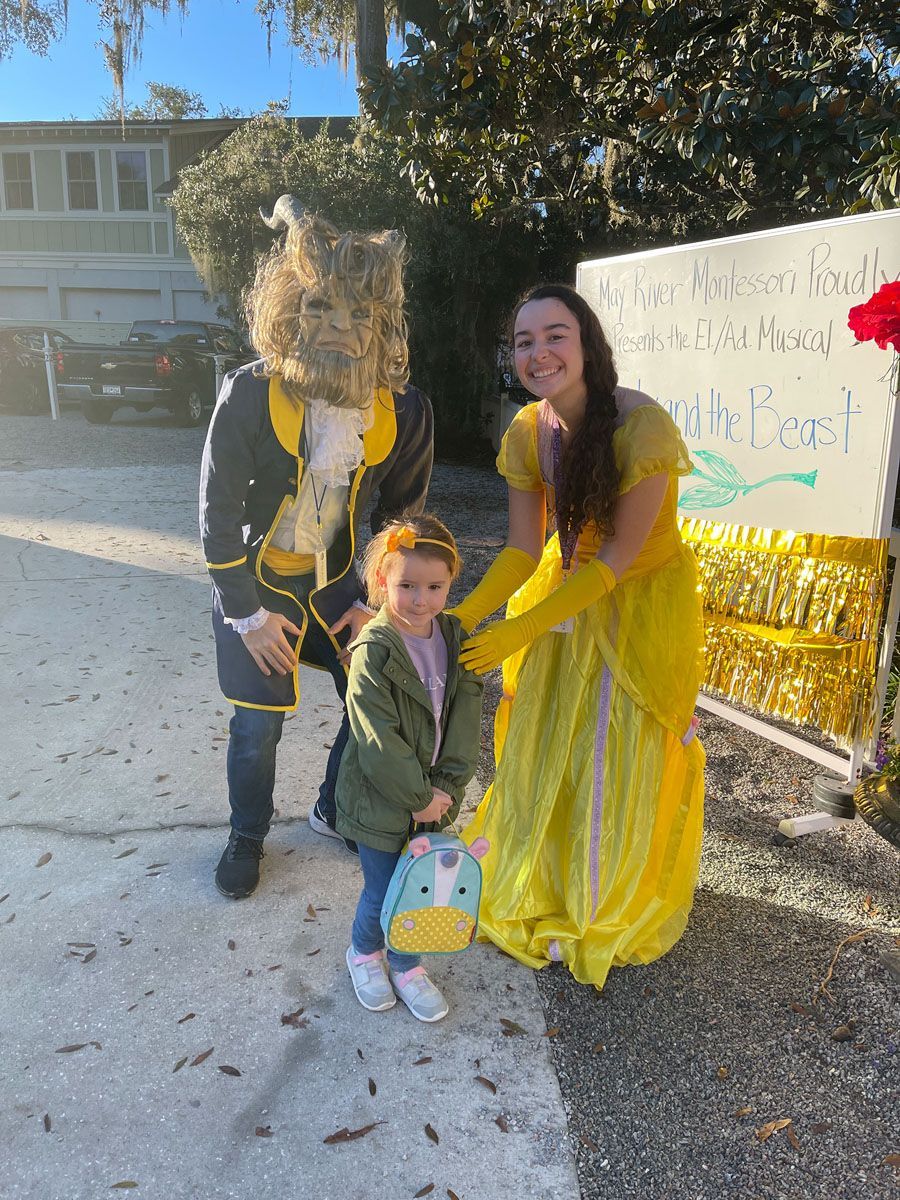About May River Montessori
The Montessori Difference
May River Montessori is a private non-profit Montessori school that fosters a child-centered learning environment that nurtures curiosity, independence, and a love of learning.
The Unique Benefits of a May River Montessori Education
Choosing the right educational path for your child is a significant decision that lays the foundation for their future. Among the myriad of options available, Montessori education stands out as a holistic approach that fosters a child’s development in unique and impactful ways.
Founded by Dr. Maria Montessori over a century ago, the Montessori method is built upon principles that honor the individuality of each child and emphasize independence, self-directed learning, and a nurturing environment. As you contemplate the educational journey for your child, here are some unique benefits of Montessori education worth considering.
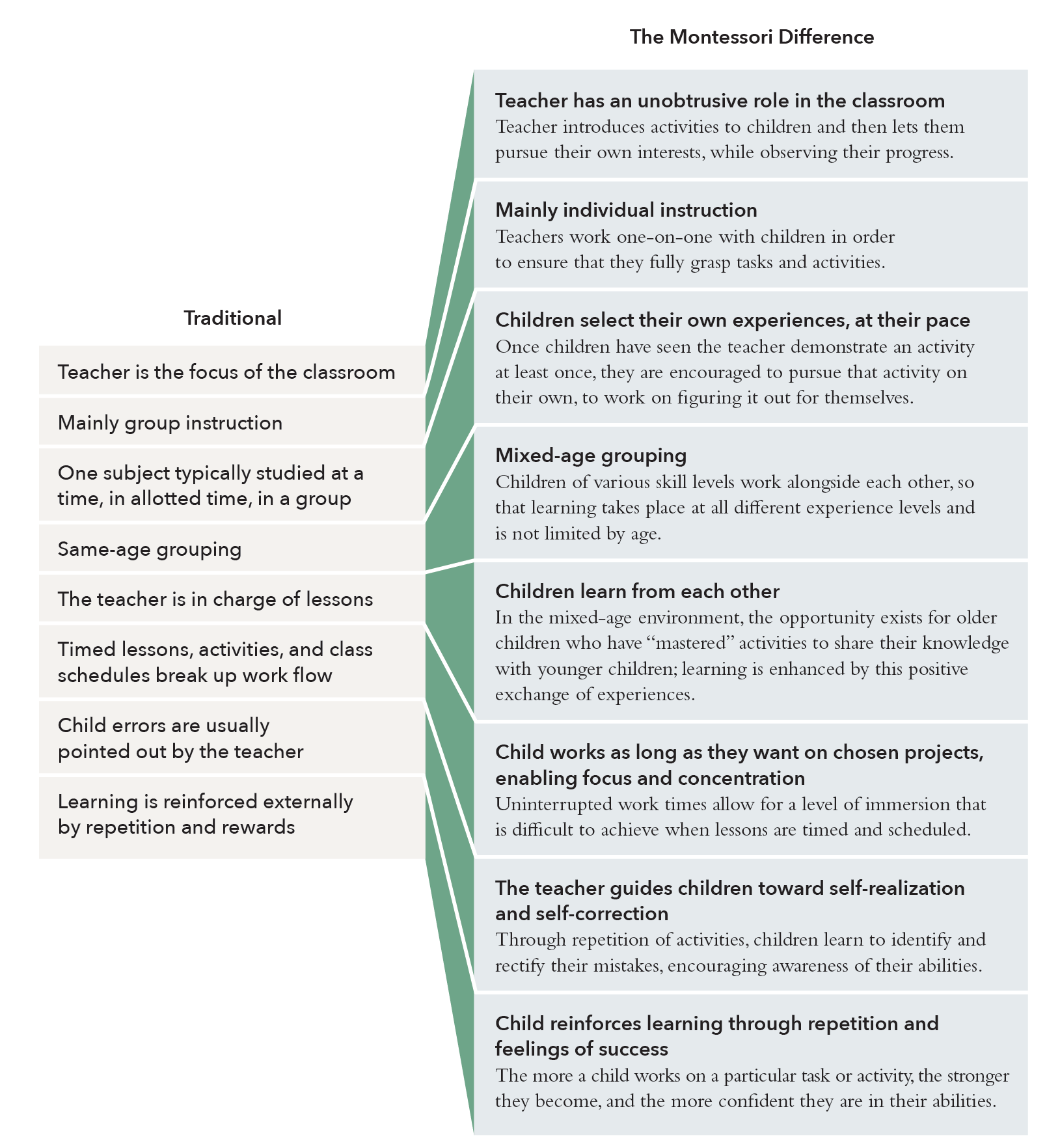
What is the Purpose of Montessori Education?
Montessori education is designed to nurture every child’s natural curiosity, independence, and love of learning. This approach is rooted in Dr. Maria Montessori’s philosophy and emphasizes hands-on, self-directed learning in a thoughtfully prepared environment. Montessori education fosters critical thinking, collaboration, and problem-solving skills while respecting each child’s unique developmental journey. Through individualized instruction, mixed-age classrooms, and a focus on social-emotional growth, Montessori prepares children to become confident, compassionate, and lifelong learners.
Montessori Education vs. Traditional Schools
Montessori education fosters innovative thinkers, nurturing creativity, critical thinking, and a global perspective. It emphasizes peace education, self-directed learning, and developing intrinsic motivation. Notable figures such as Bill Gates, Jeff Bezos, Beyoncé, and Taylor Swift have credited Montessori principles with shaping their ability to think critically, creatively, and outside the box. Even Steve Jobs, who didn't attend Montessori himself, chose to send his children to Montessori schools, recognizing its value.
In contrast, traditional education often follows a standardized, one-size-fits-all approach, focusing on rote memorization and conformity. While this method equips students with foundational knowledge, it may not always encourage the same level of independent thought or creativity.
Montessori education produces leaders, visionaries, and humanitarians who challenge norms and innovate for the future. It’s a system that celebrates individuality, collaboration, and a deep respect for learning.
Child-Centered Learning
Montessori classrooms are designed to accommodate different learning styles and paces. Rather than following a rigid one-size-fits-all curriculum, children are encouraged to explore their interests at their own pace. This approach allows for personalized learning experiences, nurturing a genuine love for learning from an early age.
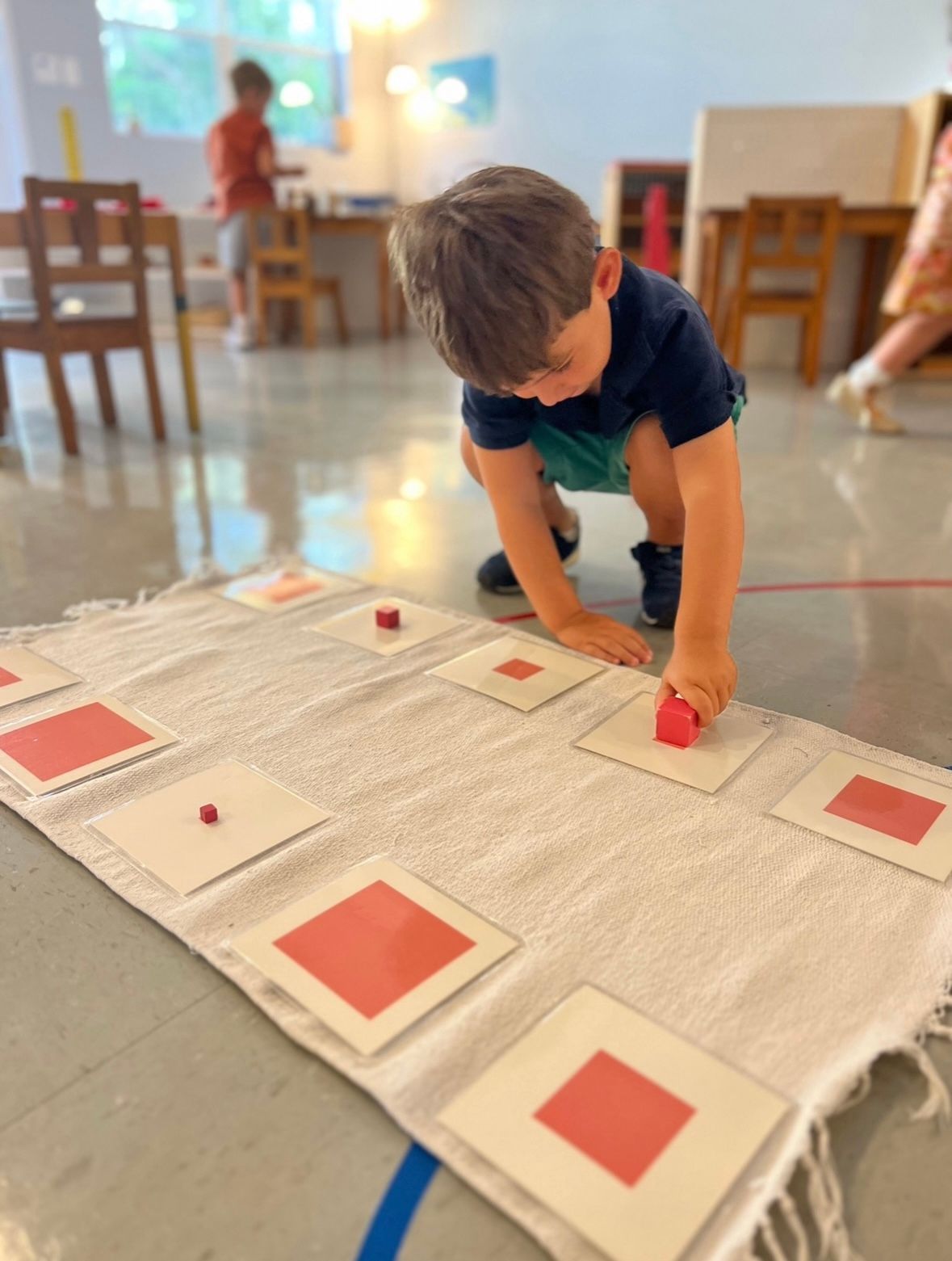
Traditional
Teacher is the focus of the classroom, mainly group instruction with alotted times.
Montessori
Teacher has an unobtrusive role in the classroom
Teacher introduces activitities to children and lets them pursure their own interests while observing their progress.
Mainly individual instruction
Teacher introduces activitities to children and lets them pursure their own interests while observing their progress.
Child works as long as they want on chosen projects, enabling focus and concentration.
Uninterrupted work times allow for a level of immersion that is difficult to achieve when lessons are timed and scheduled.
Development of Independence and Self-Discipline
In a Montessori environment, children have freedom to choose their activities within a structured framework. This autonomy cultivates a sense of responsibility and independence as they learn to make decisions and manage their time. Through self-directed learning, children develop self-discipline and a strong sense of self-esteem.
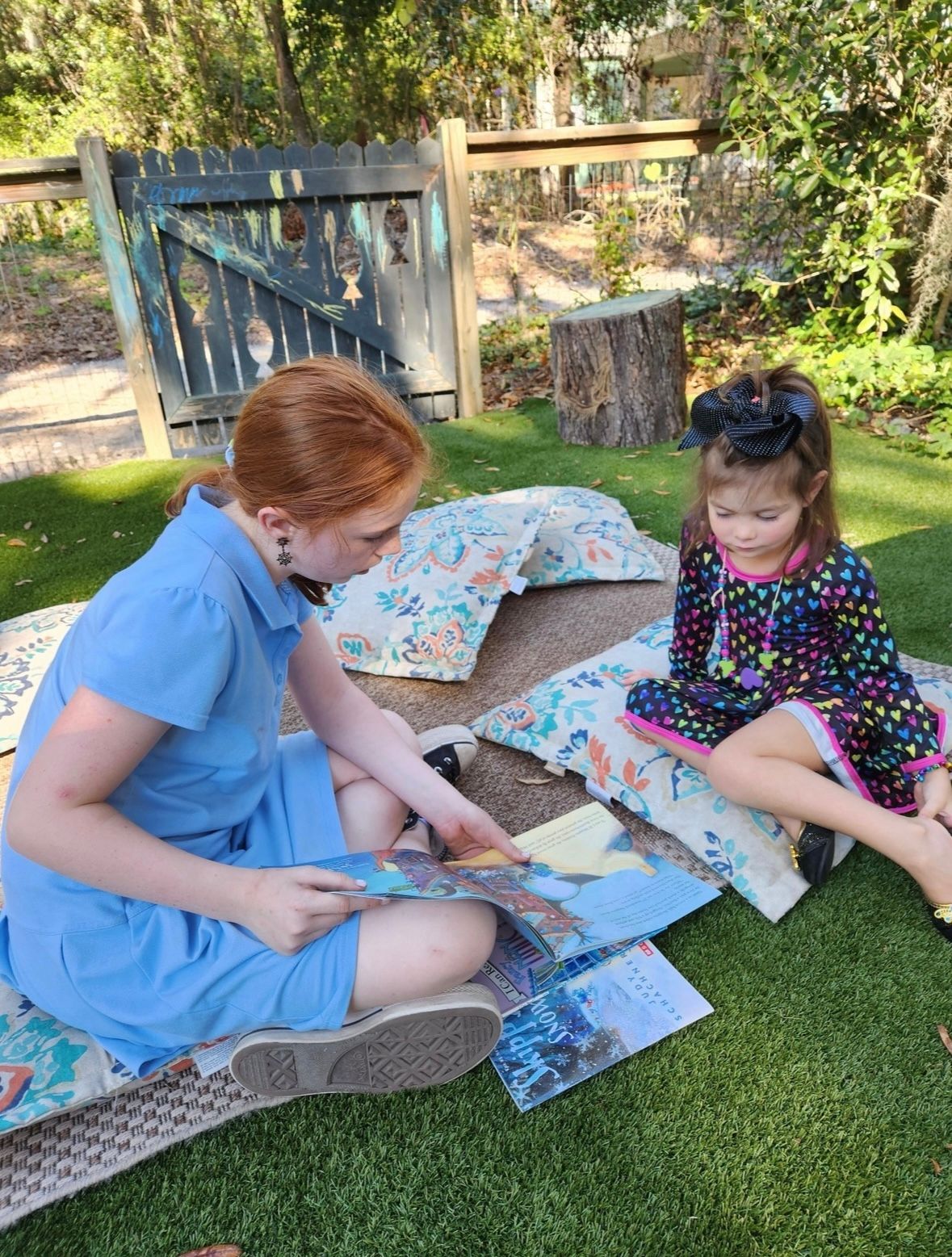
Traditional
Same-age grouping, the teacher is in charge of lessons and pointing out errors.
Montessori
Mixed-age grouping
Children of various skill levels work alongside each other, so that learning take place at all different experience levels and is not limited by age.
Children learn from each other
In the mixed-age environment, the opportunity exists for older children who have "mastered" activities to share their knowledge with younger children; learning is enhanced by this positive exchange of experiences.
The teacher guides children toward self-realization and self-correction
Child reinforces learning through repetition and feelings of success. The more a child works on a particular task or acitivity, the stronger they become, and the more confident they are in their abilities. Children learn to identify and rectify their mistakes, encouraging awareness of their abilities.
Emphasis on Real-Life Experiences
One distinctive aspect of Montessori education is its focus on practical life skills that translate to authentic, real world experiences. From planting seeds in primary to harvesting and designing companion garden beds in elementary to starting micro-businesses and building gardens in the greater local community in secondary, students develop a sense of purpose and accomplishment. These skills lay a foundation for independence and build confidence in handling everyday tasks both inside and outside of school.
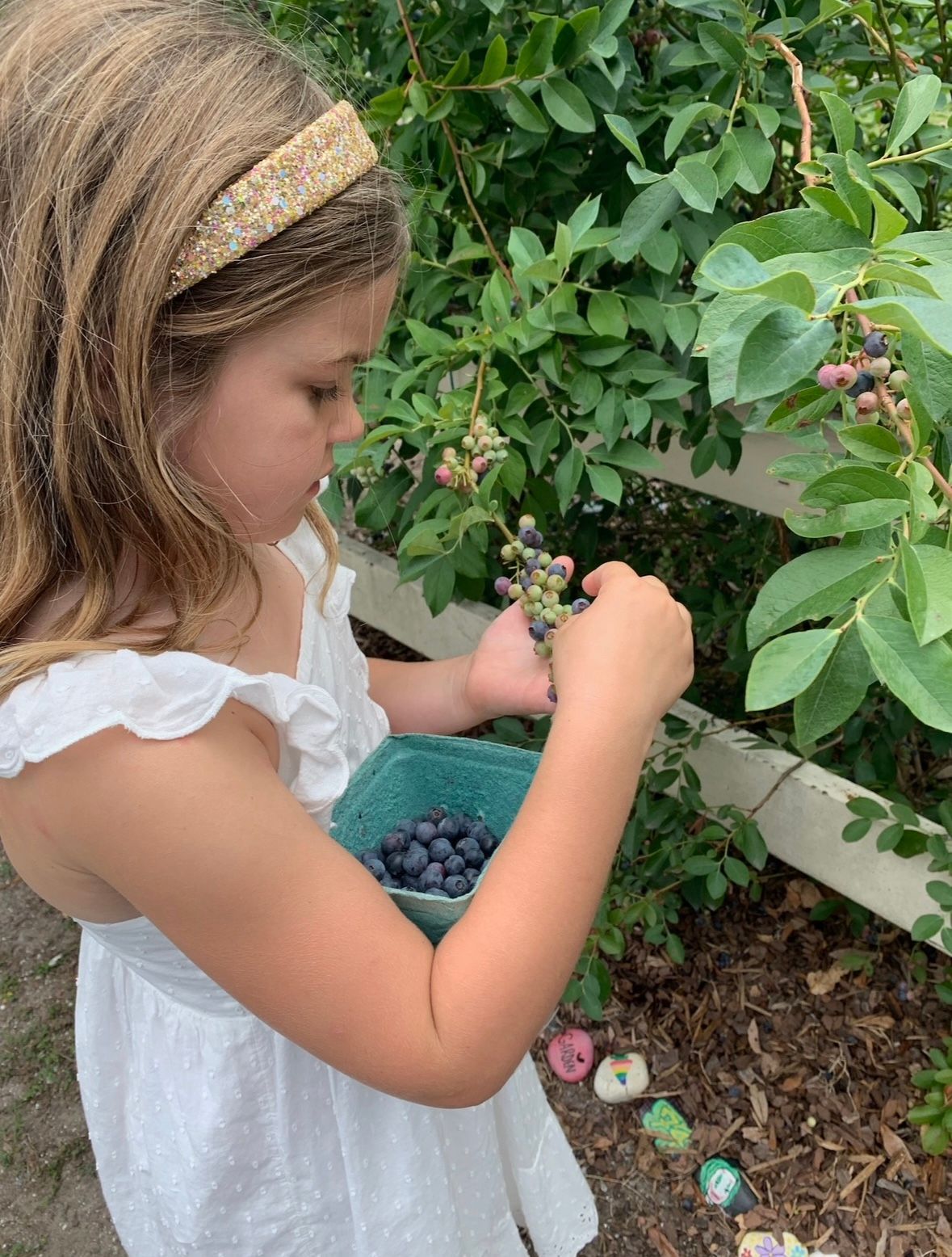
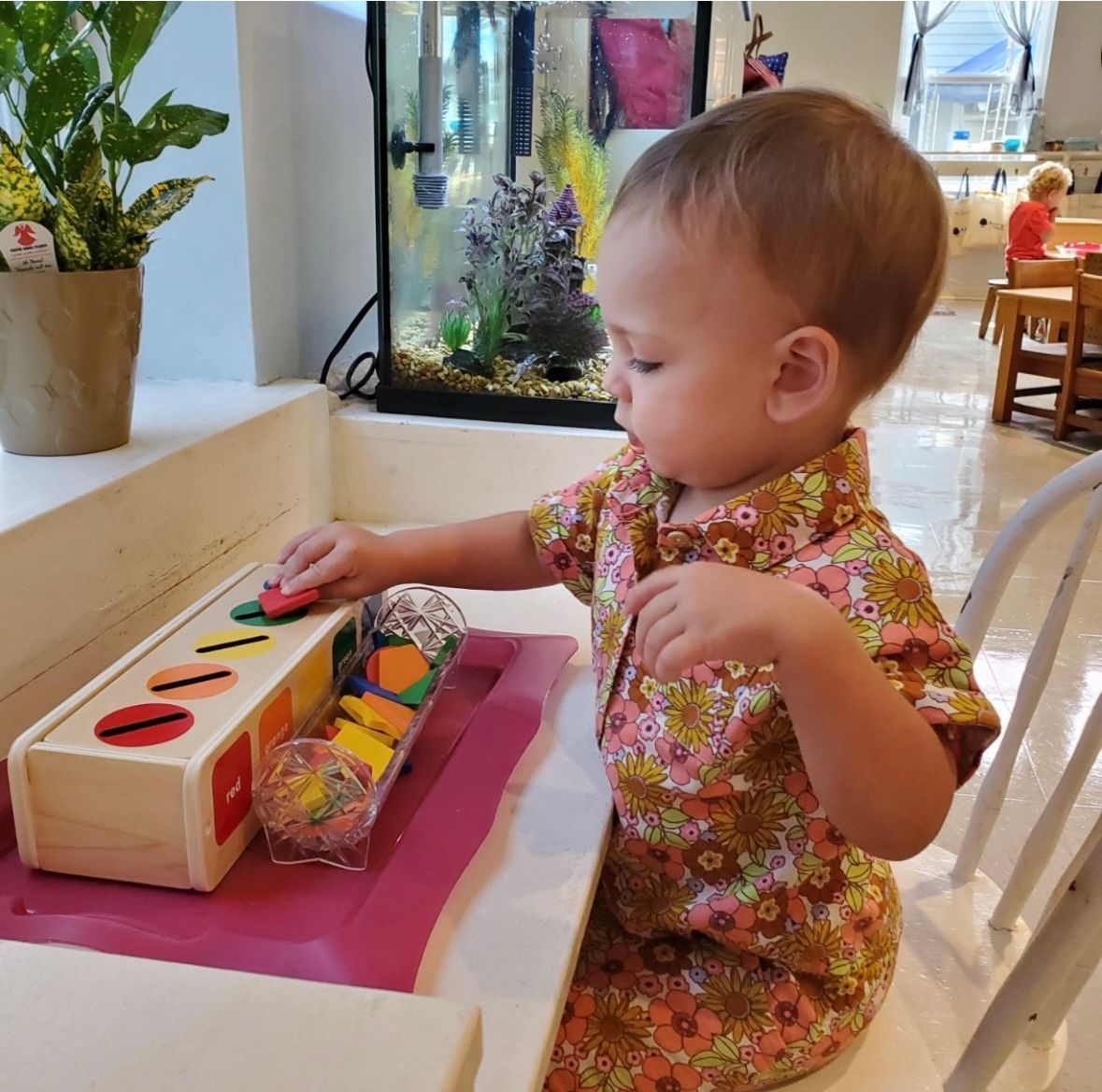
THE LEARNING ENVIRONMENT
Step inside one of our classrooms to grasp the essence of Montessori education. Beautiful and inviting learning materials are purposefully arranged and ready for use in an aesthetically appealing environment. Indoor classrooms follow an open floor plan to create a learning environment that encourages discovery and exploration. There are areas for group activity and areas for independent learning—no stifling rows of school desks. Our outdoor spaces, nestled under Spanish moss and oak trees and close to the May River, provide the daily benefits of nature.
Whole-Child Development
cognitive • emotional • social • physical
Beyond academics, our May River Montessori education focuses on nurturing the whole child—cognitive, emotional, social, and physical development outdoors. We are committed to the research that supports brain-body development and intentionally integrate it into our daily schedule for students. Through hands-on learning experiences and exposure to various real-life materials, children develop critical thinking, creativity, and problem-solving skills essential for success in the ever-evolving world.



